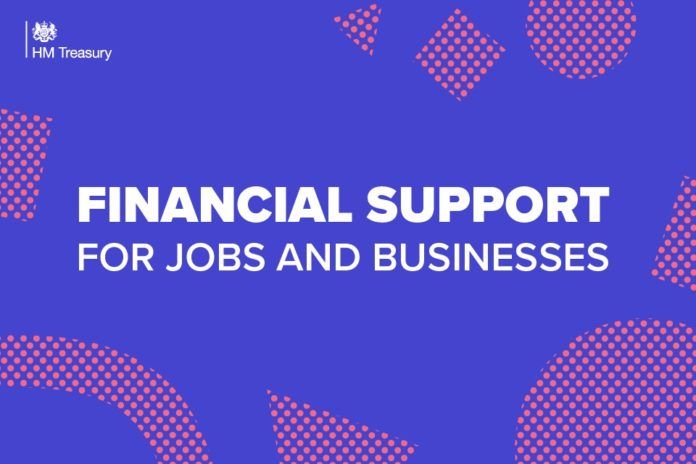In recognition of the challenging times ahead, the Chancellor of the Exchequer, Rishi Sunak, said he would be increasing support through the existing Job Support Scheme and self-employed schemes, and expanding business grants to support companies in high-alert level areas.
This builds on agreements reached with local authorities moving to alert level very high, with extra support for businesses, jobs, and the economic recovery.
The Chancellor said: “I’ve always said that we must be ready to adapt our financial support as the situation evolves, and that is what we are doing. These changes mean that our support will reach many more people and protect many more jobs.
I know that the introduction of further restrictions has left many people worried for themselves, their families, and communities. I hope the government’s stepped-up support can be part of the country pulling together in the coming months.
Job Support Scheme
Recognising the pressure businesses in some sectors and areas are facing, the recent government announcement lightens the burden of keeping on staff.
When originally announced, the Job Support Scheme – which will come into effect on 1 November – saw employers paying a third of their employees’ wages for hours not worked and required employers to be working 33% of their normal hours.
However, the updated announcement reduces the employer contribution to those unworked hours to just 5%, and reduces the minimum hours requirements to 20%, so those working just one day a week will be eligible.
That means that if someone was being paid £587 for their unworked hours, the government would be contributing £543 and their employer only £44.
Employers will continue to receive the £1,000 Job Retention Bonus. The Job Support Scheme closed for businesses legally required to close, remains unchanged.
Further information:
- The Job Support Scheme starts on 1 November and covers all nations of the UK. For every hour not worked, the employee will be paid up to two-thirds of their usual salary.
- The government will provide up to 61.67% of wages for hours not worked, up to £1541.75 per month (more than doubling the maximum payment of £697.92 under the previous rules). The cap is set above median earnings for employees in August at a reference salary of £3,125 per month.
Example: A typical full-time employee in the hospitality industry is paid an average of £1,100 per month. Under the Jobs Support Scheme for open businesses, they will still take home at least £807 a month. All the employer needs to pay is a total of £283 a month or just £70 a week; the government will pay the rest.
- Employers using the scheme will also be able to claim the Job Retention Bonus for each employee that meets the eligibility criteria of the Bonus. This is worth £1,000 per employee. Taking the Job Support Scheme Open and the Job Retention Bonus together, an employer could receive over 95% of the total wage costs of their employees if they are retained until February.
- For more information, read the Job Support Scheme Open Factsheet here.
Self-employed grant
The recent announcement from the Chancellor increases the amount of profits covered by the two forthcoming self-employed grants from 20% to 40%, meaning the maximum grant will increase from £1,875 to £3,750.
This is a potential further £3.1 billion of support to the self-employed through November to January alone, with a further grant to follow, covering February to April.
Further information:
- The government will provide two taxable SEISS grants to support those experiencing reduced demand due to COVID-19 but are continuing to trade, or temporarily cannot trade.
- It will be available to anyone who was previously eligible for the SEISS grant one and grant two, and meets the eligibility criteria.
- Grants will be paid in two lump sum instalments each covering three months. The first grant will cover a three-month period from the start of November 2020 until the end of January 2021. The government will pay a taxable grant, which is calculated based on 40% of three months’ average trading profits, paid out in a single instalment and capped at £3,750.
- The second grant will cover a three-month period from the start of February until the end of April 2021. The government will review the level of the second grant and set this in due course.
For more information, visit the HMRC website here.
Industry reaction to extra support for businesses
The extra support for business announced by the Chancellor is welcome, but greater clarity is needed from all levels of government as to the timetable and nature of the restrictions on business, warns Brian Berry, chief executive officer of the Federation of Master Builders.
He said: “I welcome the extension of the Job Support Scheme and Self-Employment Income Support Scheme as important interventions to protect businesses at this critical time. Small builders have made use of the financial support available, particularly at the start of the crisis. What they need, however, is greater clarity from the UK and devolved governments, with regards to lockdown restrictions and no confusion about how these are communicated. These also need to be joined up and in line with government supports. Unfortunately, this hasn’t always been the case.”
Meanwhile, Michelle Ovens, founder of Small Business Britain, added: “The ongoing challenges of COVID-19 is placing small businesses under huge pressure, therefore, it is vital that they have as much support as possible, as the situation across the country continues to evolve.
“It is good to see the government is offering this new extra help over these difficult winter months, to help protect jobs and the small businesses at the heart of the UK economy.”




